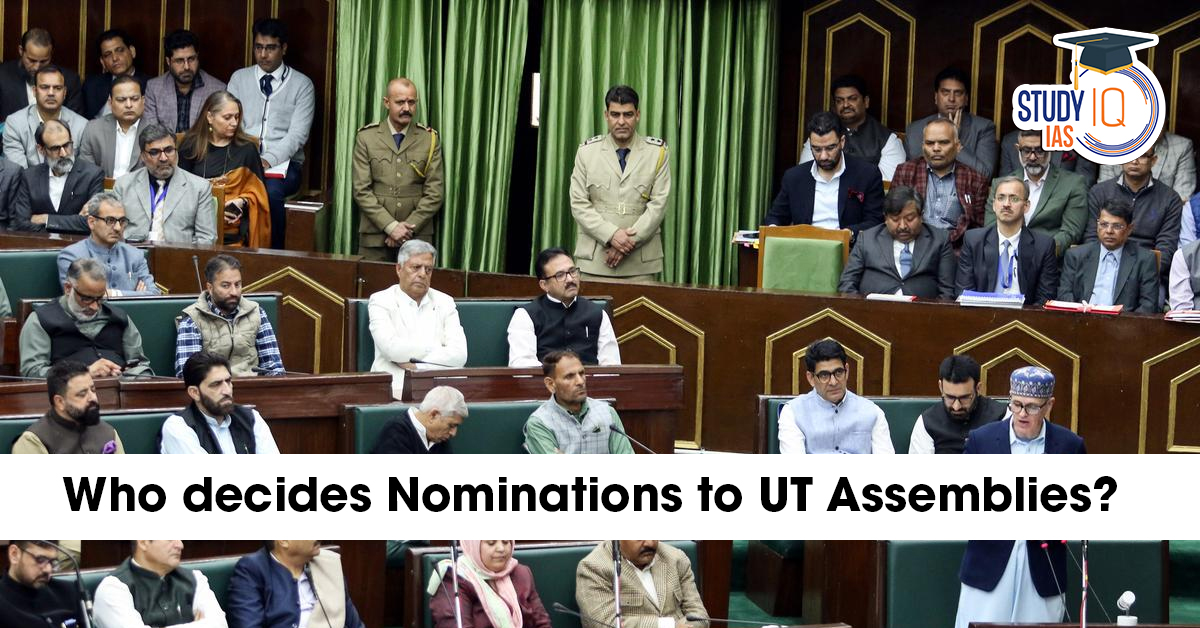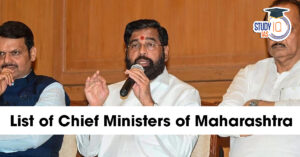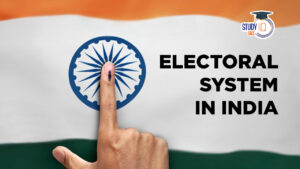Table of Contents
Context: Debate on nominations to Union Territory (UT) Assemblies revived after the Union Home Ministry’s affidavit in the J&K and Ladakh High Court. The affidavit stated that the Lieutenant Governor (LG) of J&K can nominate 5 members to the Assembly without the Council of Ministers’ advice.
Constitutional Provisions on Nominations to Union Territory Assemblies
Parliament & State Legislatures
The Constitution allows nominated members.
- Anglo-Indian representation was abolished in 2020.
- Rajya Sabha: 12 nominated members (appointed by the President on the Union Cabinet’s advice).
- Legislative Councils: One-sixth nominated by the Governor (on ministerial advice).
Union Territories
Guided by Parliamentary statutes.
- Delhi: No nominated MLAs (70 elected members).
- Puducherry: Union govt can nominate up to 3 members (UT Act, 1963).
- J&K: 90 elected seats; LG can nominate 5 members (women, migrants, displaced persons) under J&K Reorganisation Act, 2019 (amended 2023).
Judicial Precedents related to UT Assemblies Nominations
- Puducherry Case (2018): Madras HC upheld Union govt’s power to nominate 3 members without ministerial advice.
- Recommended statutory clarity, but the Supreme Court later upheld the Union govt’s power.
- Delhi Services Case (2023): SC highlighted “triple chain of command”:
- Civil servants → Ministers
- Ministers → Legislatures
- Legislatures → People
- Strengthens the argument that LGs should act on ministerial advice in Assembly matters.


 List of Chief Ministers of Maharashtra F...
List of Chief Ministers of Maharashtra F...
 Electoral System in India 2026: SIR Upda...
Electoral System in India 2026: SIR Upda...
 SLAPP Suits: Meaning, Examples, Impact o...
SLAPP Suits: Meaning, Examples, Impact o...

























